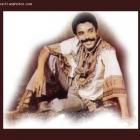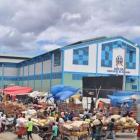ADVERTISEMENT
Photos
Cap-Haitian during government of Lysius Salomon
Here is a view of the second Haitian city Cap-Haitian in 1881 during government of Lysius Salomon.
Louis Lysius Félicité Salomon Jeune and his family were forced to flee the country to live in exile in Neyba during the rule of Charles Riviere-Hérard.
Upon his return Salomon, with the support of the masses, was named the nation's President, a role he would have until only months before his death in 1888. During this time, he was faced with many oppositions, mostly because of his radical means of turning the economic tide in the country, and also because of his determination to pay off the costly debt owed to France. He revolutionized the armed forces in the country, brought about a widespread modernization, opened the National Bank and established links between Haiti and its Caribbean neighbors, Cuba and Jamaica. The president would also rewrite the nation's constitution, making it possible for him to be re-elected in 1886 for a term of 7 years.
Haitian President, Lysius Salomon
Here is a picture of Haitian President, Lysius Salomon.
The life of former Haitian President, Louis Lysius Félicité Salomon Jeune, before he became leader of the country was riddled with stages of discord for his family with various factions. He was born in Les Cayes in 1815, and his family were an influential set who often clashed with the elite mulattoes of the south where they lived. They were forced to flee the country to live in exile in Neyba during the rule of Charles Riviere-Hérard.
This exile would not be the only one endured by Salomon. With a shift in power, as the rule of the country turned over to Faustin Soulouque, the soon-to be-president returned to Haiti and was named minister of finance, a role he would keep until Soulouque was removed from power. At that time, Salomon had to, yet again, flee Haiti in exile, living in Paris and London until it was safe for him to return.
Arch of President Lysius Salomon
This is a picture of the Arch of President Lysius Salomon
Under the administration of Lysius Salomon, Haiti began using the postage stamp issued by the International Postal Union, the country was linked to Cuba and Kingston through Môle Saint-Nicolas and Port-au-Prince respectively by a cable company out of Britain, and the ranking in the Haitian army underwent a radical reorganization.
While he made many advancements for the company, his determination to clear Haiti's debt with France put him in the crosshairs of exiled rebels seeking a coup. The last four years of his presidency were riddled with numerous rebellions from the Cacos, a military group. The zenith of these fights would be "Bloody Week" in which scores of people including merchants, foreigners and those of the elite were murdered as government buildings were set ablaze.
Lysius Salomon established Haiti National Bank
Here is a picture of Haiti National Bank that was established under the presidency of Lysius Salomon
One of Haiti's past presidents has the legacy of being one of the most productive of the line in the both past and present. He was President Lysius Salomon, who lived from 1815 to 1888, and ruled the country from 1879 until just months before his death. From a wealthy family in Les Cayes, Salomon was privy to a good education that left him with the right background to become Minister of Finance under Faustin Soulouque following a brief exile of his family to Neyba. His role in this capacity would result in his second exile, to Europe, because of the piracy and smuggling that came out of the administration's rule.
When he returned to the country in August of 1879, Salomon was made president, and he made quick work of establishing the National Bank. The following year he was able to resume the debt payment owed by Haiti to France. The early years of his rule saw great advancements in Haiti as he sought to raise the country's productivity and education level, strengthen its overall economy and even boost its army.
Vice President Joe Biden Call with Haitian President Michel Martelly
Here is the actual content of the call by Vice President Joe Biden Call with Haitian President Michel Martelly on January 16, 2015
United States Vice President Joe Biden spoke via telephone with the Haitian President, Michel Martelly, on January 16, 2015, following the disappointing end to Haiti's parliament. The US had taken a vested interest in the affair, citing their continued support of the smaller country's development and progress in democracy. It is reported that the President of Haiti was commended on his efforts to secure the necessary parliamentary vote to facilitate an election on the island, including numerous concessions, not the least of which was securing the resignation of his then Prime Minister, Laurent Lamothe.
Ninth edition of Port-au-Prince International Jazz Festival begins
Ninth edition of Port-au-Prince International Jazz Festival begins
The staging of the Port-au-Prince International Jazz Festival for 2015, the ninth edition of the vastly enjoyable musical event, was from January 17 to 24. Daring tourists to discover Haiti through the festival, the promoters billed it as a coming together of a multitude of quality international bands from the Haitian Diaspora, North America, Europe and South America. The headliners of the event included The Yellow Jackets, Ranee Lee, Laurent de Wilde, Etienne Charles, Maya Azucena, Tabou Combo, and Jowee Omicil.
Evans Paul as new Haiti Prime Minister
President Michel Martelly swore in Evans Paul as new prime minister
Haiti's newly sworn Prime Minister, Evans Paul, was given his formal welcome into the post by the President, Michel Martelly, on January 16, 2015. The swearing in ceremony was attended by many prominent members of the political field and other diplomats. Despite this official ceremony, Prime Minister Paul has not been approved and ratified by parliament, since the country has been without a functioning parliament since January 12. Paul, a member of the opposition, vowed to incorporate more opposition figures within the cabinet to form the promised consensus government.
Jean-Pierre Boyer, theUnification of Haiti and Santo Domingo
President Jean-Pierre Boyer had much on his plate in the early 1820s. Among them was the matter of unification between Haiti and Santo Domingo. At the time, while some in the Spanish country sought to align themselves with Gran Colombia, others, especially those who were former slaves, sought to ensure emancipation by siding instead with President Boyer. Answering the call, Boyer marched with 50,000 soldiers and took the keys to the city of Santo Domingo.
Jean-Pierre Boyer and American black migration
During the 1820s, six thousand black Americans were taken to Haiti as part of a migration scheme in which President Jean-Pierre Boyer had a heavy hand. It followed Haiti's establishment as a free black state and was an open invitation for black Americans to find freedom from slavery in Haiti. Many think the plan failed, but for different reasons, one was that thousands returned to the U.S., and the other was because the expectations of the prospect weren't considered met.
Louis Borno, President of Haiti
Here is a picture of the Haitian President Louis Borno, the Rebuilder of Haiti.
Louis Borno, Haiti's 28th president, was a seasoned politician by the time he assumed the presidency in 1922. An attorney by profession he was first appointed envoy to the Dominican Republic in 1899.
By 1915 Borno was serving as Minister of Foreign Affairs under President Philippe Sudré Dartiguenave. He continued in that position, holding auxiliary positions in finance, commerce, education, worship, public works, and justice. While Minister U.S. troops landed to stop uprisings in Port-au-Prince and occupied Haiti until 1934. But violence continued in rural areas where peasants were rebelling against U.S. Troops. Unsuccessful they died by the thousands.
When Dartiguenave's term ended the State Council elected Borno as Dartiguenave's successor. Once in office Borno was able to broker an agreement with U.S. High Commissioner Major General John H. Russell to get the U.S to aid in Haiti's economic development.

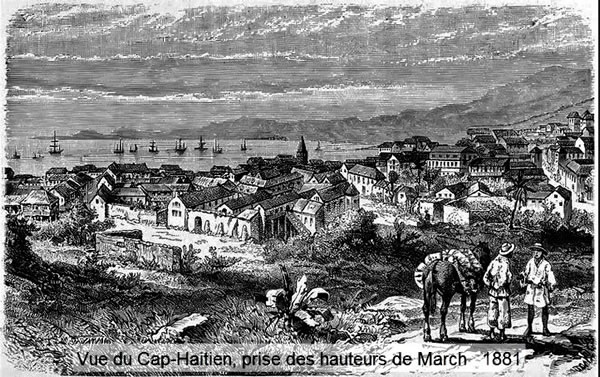
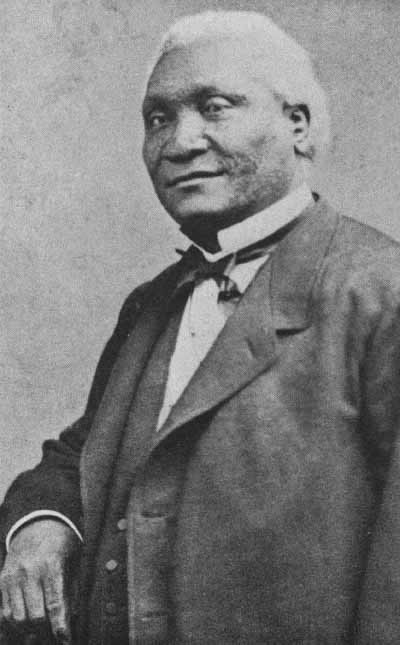
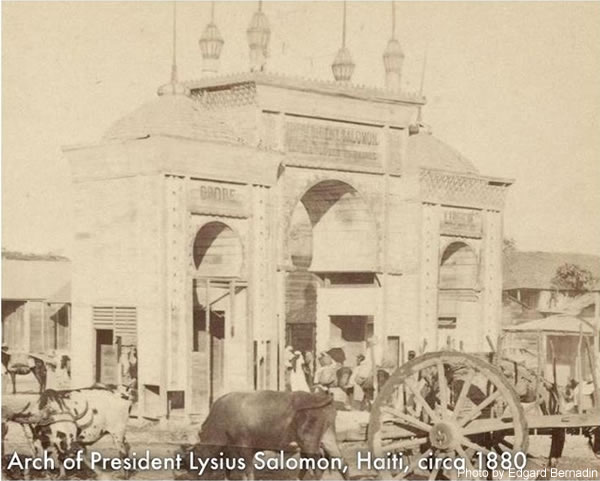
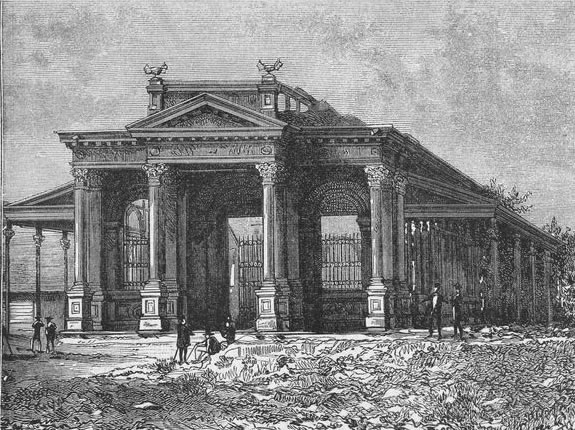
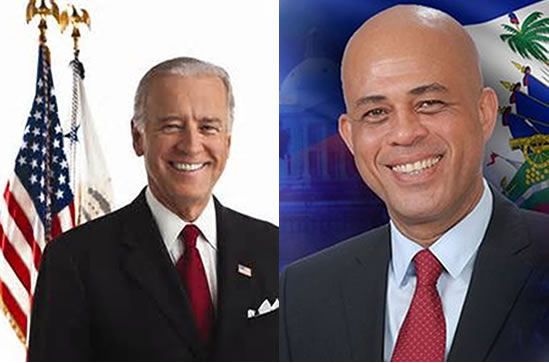

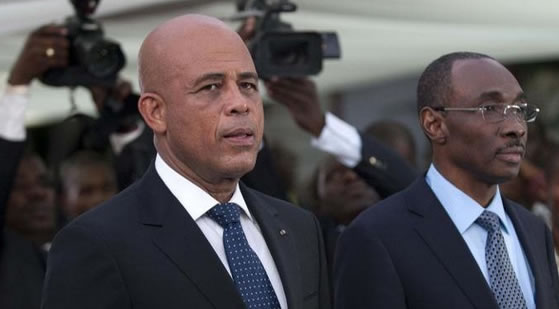
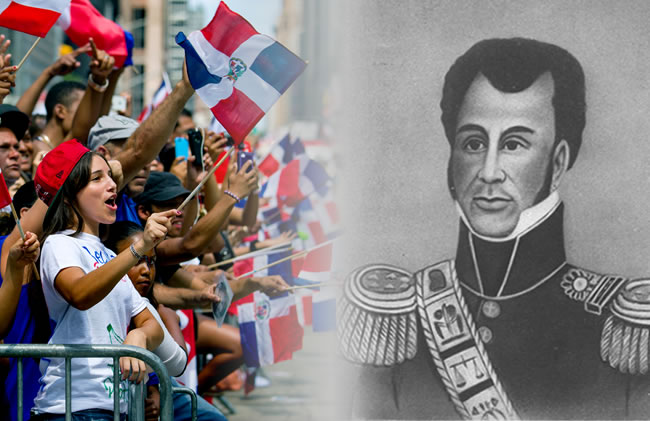
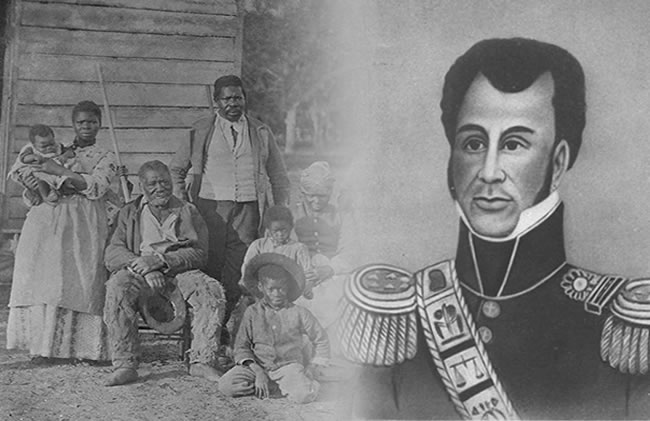
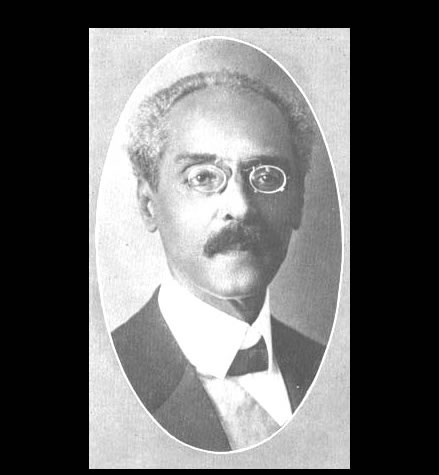
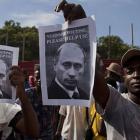 Haitian protesters called on Russian President Vladimir Putin...
Haitian protesters called on Russian President Vladimir Putin... 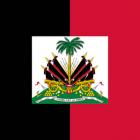 Haitian Flag Under Francois Duvalier changed in 1964 to black...
Haitian Flag Under Francois Duvalier changed in 1964 to black... 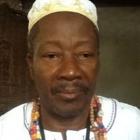 Ougan Alcenat Zamor eli nouvo Nasyonal ati
Ougan Alcenat Zamor eli nouvo Nasyonal ati 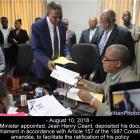 Jean Henry Céant deposited documents in Parliament for...
Jean Henry Céant deposited documents in Parliament for... 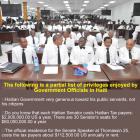 Partial list of privileges enjoyed by Government officials in...
Partial list of privileges enjoyed by Government officials in... 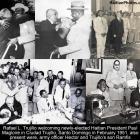 Rafael L. Trujillo welcoming Paul Magloire in Santo Domingo
Rafael L. Trujillo welcoming Paul Magloire in Santo Domingo  Haitians, the second largest black immigrant group in the US
Haitians, the second largest black immigrant group in the US  Delimart Plaza, Delmas 32, Port-au-Prince, Haiti being looted
Delimart Plaza, Delmas 32, Port-au-Prince, Haiti being looted 